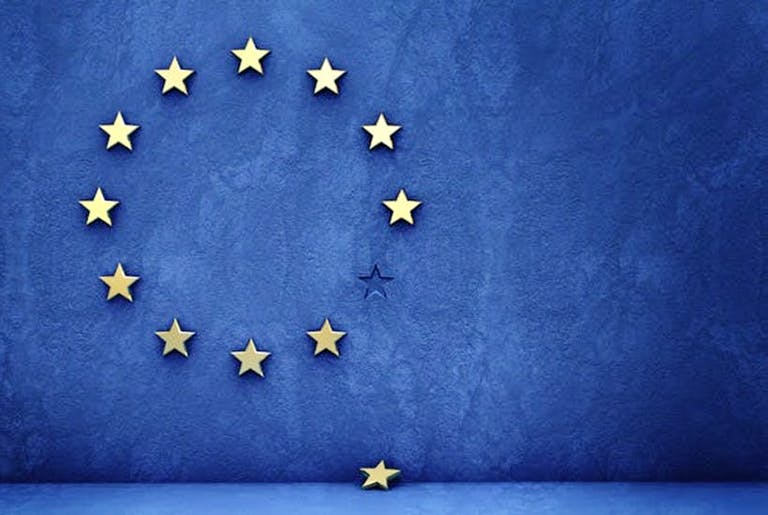I’ve got sympathy with those tempted to tell the Brussels elite to stuff their Brexit deal. Quite a few of my relatives and friends feel a two-fingered salute is the appropriate response to demands for £39 billion and what they see as the naked instrumentalisation of the Irish border.
They listen to Emmanuel Macron and European leaders drip disdain on the British electorate for exercising a right to leave the Union afforded to all member states in EU law, watch Jean-Claude Juncker’s weird hair-fluffing antics, and read about top German MEP Elmar Brok’s dodgy scheme to profit from European Parliament tours. They think Theresa May has made a pig’s ear of the negotiations, and watch her struggle to explain her own flagship policy. They think Government should have prepared properly for No Deal from the start, rather than letting the Treasury organise a Whitehall ‘go slow’. They see MPs who voted for a referendum, promised to respect the result, and then voted to trigger Article 50, now demanding No Deal is taken off the table.
Even though I have been relatively sanguine about No Deal, I think they’re wrong. Of course, the EU is behaving badly in various ways. It’s pretending to be constrained by its own legal order, when in reality naked power politics is at play. And it’s bizarrely ironic that the backstop is the main obstacle to a deal, so risking a hard border, precisely what the backstop was designed to prevent in the first place. All this reminds me of why I wanted to leave the EU. But here’s why it’s better to take the bird in hand, and accept a version of the Prime Minister’s deal:
First, we know many MPs and three of our former prime ministers are desperate to re-run the referendum. The risk is that by pursuing a perfect Brexit, Leavers could lose any Brexit at all. If Parliament does end up backing a divisive second referendum, MPs would probably force a No Deal option off the ballot paper and manipulate the franchise.
Second, by withholding support from May’s deal, Eurosceptics risk forcing the Prime Minister to soften her deal further. If she can’t secure a majority, she will be pushed to accept a worse outcome – a permanent customs union or even Single Market membership.
Third, May’s deal, while obviously a compromise, has been misunderstood by critics. Even in the worst-case scenario – if the UK ends up trapped in the backstop – we would be outside the EU’s political structures, out of the Single Market, as well as the Common Fisheries and Agricultural Policy, in control of migration, free from all compulsory financial contributions, able to design our own rules for the services’ sector (accounting for 80 per cent of GDP), and free to say no to new European environmental or labour standards. If the EU tried to introduce new laws on goods regulations we could resist these – even for Northern Ireland.
Fourth, although I want to leave the customs union, there’s a flaw at the heart of the No Dealers’ argument. They demand we leave the customs union so we can do trade deals but simultaneously claim they are happy to trade on WTO terms, without any agreement with our biggest trade partner.
Fifth, going for No Deal, now there’s an agreed deal, would cleave the Tory party down the middle. It will be bitterly opposed by key Cabinet ministers including the Chancellor. How could the Conservatives keep governing in such circumstances? It might have been possible with a strong Tory majority but that vanished back in June 2017. And, having failed to depose the Prime Minister in December, do the ERG now want to see her leading the party into a snap election which could well be lost? Black Wednesday might have ushered in a long period of economic growth, but it also destroyed the Conservative’s reputation for economic competence, helping propel Labour to power for 13 years.
Sixth, No Deal would mean an economic hit. Although the risks have been over-stated, there would be significant disruption, particularly at our borders and a hit to business confidence and legal certainty. Some sectors would be more affected than others – especially agriculture and complex supply chains industries. Of course, Government could take remedial action but that is harder with no workable majority and corporation tax already low by international standards.
Seventh, No Deal would, by definition, mean a break in relations with our nearest neighbours. I campaigned for Brexit because I wanted to leave the EU, not to disrupt cooperation on security, defence and intelligence with major allies.
Finally, it’s sometimes claimed there’s a mandate to leave without a deal. But I was there working in Vote Leave’s campaign HQ, briefing the principals. The official campaign rejected the various existing models but said we would get a bespoke deal and be part of a free trade area from Iceland to the Russian border.
May’s deal is far from perfect. But the most important question is not “why did we end up here?” but “what should MPs do now?”. The Conservative Party has always managed to marry what Russell Kirk described as the “disposition to preserve with the ability to reform”. Going for No Deal would mean a radical break, and be bitterly opposed by the majority of MPs.
Brexiteers should remember our own arguments – after four and a half decades, the EU penetrates into our lives in so many more ways than the Remain campaign acknowledged. So, it’s inevitable that untangling all that will be a process rather than a sudden event. MPs should press for changes to the Prime Minister’s deal, above all a sharper exit mechanism from the backstop. But they should also realise that the alternatives to this negotiated deal are far more problematic than their proponents are willing to admit. And that the safest path out the EU, is to back a revised version of May’s deal.






Comments